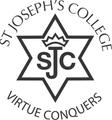ENGLISH

I want to take this opportunity to welcome you to the college and, in particular, to the English Learning Area. I want to provide you with an overview of what your child/ren have done in each year level during Term 1.
YEAR 7
Students commenced the year with an induction to the college. Following the induction, they gave presentations to parents on the college’s history and values. The remainder of the term has been spent establishing and consolidating literacy skills through weekly spelling, reading and grammar activities. Each class has also undertaken a novel or short story study. Student literacy skills, spelling and grammar, are the focus of Term 1. Throughout the year, we retain a structured approach to language skills by devoting three of the students’ five lessons per week to reading, spelling and increasingly complex grammar tasks. This structure is specifically intended to improve student comprehension and writing.
YEAR 8
Students started the year with an introduction to narrative writing and activities specifically devoted to all elements of narrative structure. Students have learnt elements of the narrative form and have experimented with creating their own narratives. Year 8 weekly classes have also been structured to improve literacy through language comprehension and writing practice. Most weeks, students spend three out of five classes practising spelling, reading and grammar skills. This structure is continued from Year 7 and is specifically intended to improve student comprehension and writing.
YEAR 9
Students commenced the year with a creative response to John Boyne’s famous and oneiric first-person rendition of a child’s experience of the Holocaust, The Boy in the Striped Pyjamas. Students have learnt about the cultural and historical importance of the Holocaust on western civilisation by reading The Diary of Anne Frank and other primary sources. They have also considered how this tragedy directly relates to many people, even our own community. They have reflected orally and in writing on the significance of the Holocaust and other global events which target minorities or disrupt society.
YEAR 10
Students are introduced to the cultural significance of lesser-known elements in Australian Indigenous history by closely studying a film adaptation of Kate Grenville’s The Secret River, which explores a fictionalised version of the Hawkbury Massacre. Students have responded critically and creatively to the film. They were invited to further research the legacy of white colonisation on Indigenous Australia and the ongoing importance on the whole of Australian society. Students explicitly studied film techniques and explained their own authorial choices in their creative response; both skills directly inform their ability to respond accurately to the same types of tasks in VCE English.
YEARS 11 AND 12
Students are each undertaking text responses. Year 11s are about to write an analytical response to the WWI poetry of Siegfried Sassoon and Wilfred Owen. They have learnt advanced poetic analysis technique very carefully and are about to apply this to their first essay response of the year. This task is designed to emulate their Year 12 SAC experience to provide students with usable feedback that they can employ in their own improvement strategy for the year. Year 12s are about to respond to Cate Kennedy’s domestically themed anthology, Like A House on Fire. Students have responded critically and creatively to all elements of their selected stories whilst focusing on refining their essay writing techniques.
YEAR 9 AND YEAR 11 LITERATURE
Both groups are studying classic gothic fiction at present. The Year 9s will provide a creative response to a series of gothic short stories, including A Rose for Emily, The Tell-Tale Heart, Carmilla and Dracula’s Guest. Year 11s are responding analytically to Frankenstein, Mary Shelly’s terrifying treatise on hubris and the dangers of forbidden knowledge.
___________________________
Parents of all students are encouraged to actively participate in their children’s reading by modelling reading practices at home and taking an interest in what their children are reading. Reading for pleasure is a vital element in improving literacy – a key factor in the likelihood of children developing a love of reading is seeing other family members enjoying books. Reading material can be of any nature; consistency is the key. High quality sports publications, biographies, news publications or any other source of analogue reading material is a great way to get reluctant readers into the habit of reading daily.
Ms Joelene Cappola
English Learning Area Facilitator
